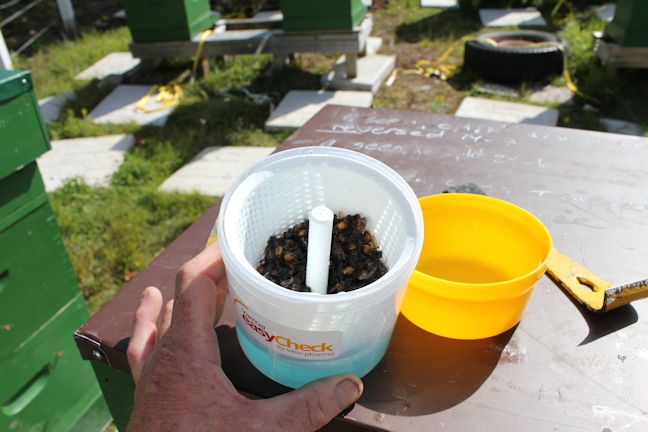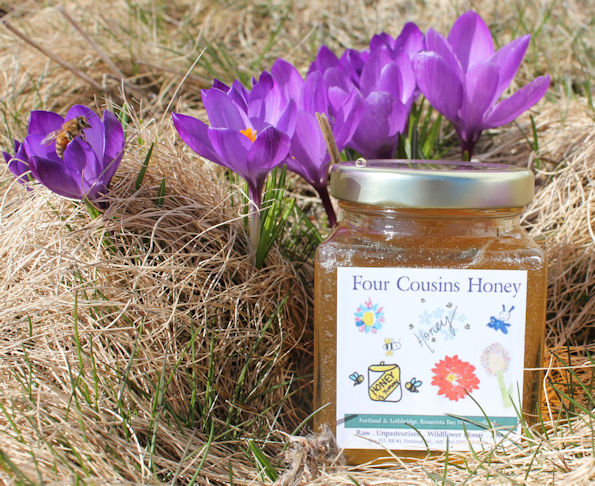Ethical beekeeping
Keep Newfoundland and Labrador Varroa free. We test for Varroa!

At Four Cousins Honey we're committed to ethical beekeeping. Here's what it means:
- quality honey and other honey bee products that are carefully prepared and are what they say they are (e.g., honey that is "raw," "unpasteurized," "local," "wildflower," and "artisanale." See "We had our honey tested."
- ethical animal husbandry, that is, keeping our honey bees as healthy as possible with regular inspections, proper winter protection, proper feeding, vigilance with respect to pests and diseases, managing the swarming impulse, etc. Also, trying to minimize squishing and otherwise killing bees during our hive inspections through the judicious use of smoke and other methods;
- respecting our neighbours so that our honey bees are not a nuisance to them;
- to the best of our ability, protecting the biosecurity of our apiaries, not only for the health of our colonies, but also to prevent the spread of any pests or pathogens to other beekeeping operations in Newfoundland and Labrador;
- full support for, and participation in, a provincial Varroa Action Plan. We test our bees for varroa mites using the alcohol wash and sticky board methods as prescribed by the plan. Early detection is the key to survival!;
- no illegal importation of honey bees or used beekeeping equipment;
- registration of our apiaries with the provincial apiarist;
- full support for mandatory registration of apiaries and mandatory reporting of honey bee diseases and pests to the provincial apiarist;
- consulting other beekeepers in the Bonavista Peninsula region with respect to our beekeeping activities, in particular, traffic of bees in and out of our apiaries from other parts of the province;
- striking an appropriate balance between transparency concerning our beekeeping operations and the need to protect confidential "business" information such as client/market relations, income from our sales, etc.;
- recognizing that honey bees are part of a bigger ecosystem that includes bumble bees and other pollinator insects. Many of these creatures share the same flowers that our honey bees get their nectar and pollen from. We accept our responsibility as beekeepers to protect native pollinators from any negative effects of our apicultural activities.

